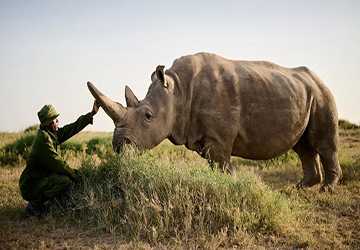On safari, nature lovers can experience exotic animals and plants up close in their natural habitat, creating an unforgettable and inspiring experience. Seeing these animals in the wild spark’s curiosity and interest in learning more about them and their ecosystems. Hunting trips can lead to discoveries not possible elsewhere. Captivating wildlife adventures awaken a desire for greater exploration and conservation of fragile ecosystems. They inspire travellers to travel to remote natural areas. Wildlife adventures encourage nature lovers to take an active role in protecting endangered species and habitats. This article explores seven reasons why hunting is essential for aspiring naturalists.

7 Transformative Powers of Wildlife Safaris for Nature Lovers
Safaris allow you to immerse yourself in unspoiled natural beauty that is second to none. Let’s look at why a wildlife safari should be on every nature lover’s bucket list:
1. Rare sightings of exotic species in their natural habitat
Driving through the vast national park, you can observe exotic animals such as giraffes, zebras, cheetahs, and African wild dogs, all roaming freely and undisturbed in their natural grassland habitats. It offers rare sights and magical interactions not found in zoos or elsewhere. The beauty and brutality of the food chain have awakened a fascination with ancient African species.
2. Experience fragile ecosystems first-hand
The safari experience highlights the sensitivity of the ecosystem, where lions, cheetahs, elephants, primates, and a variety of African wildlife thrive together despite the lack of suitable habitat. Without protective measures, these fragile balances can be disrupted. Safaris give visitors an appreciation for sustainability efforts and allow visitors to continue observing the fantastic creatures that thrive in their natural environment.
3. Appreciate local culture
Local hunting guides provide valuable indigenous insights into ecosystem dynamics, animal behavior and the challenges of human-animal coexistence. They shared how their communities balance modernization with protecting fragile environments and time-honored cultural traditions. Visitors appreciate the sustainable conservation model in which locals invest in protecting exotic species.
4. Promote sustainable ecotourism and conservation incentives
Park fees, local guide salaries, and community partnerships forged through wildlife safaris promote habitat protection, prevent poaching, and land development for quick profits. When visitors experience exotic species first-hand, they invest in anti-poaching and wildlife recovery programs that allow endangered animal populations to recover.
5. Ignite your sense of adventure and desire to travel
Observing iconic African wildlife against a picturesque backdrop awakens an unprecedented sense of adventure. Seeing a lioness teaching her cubs to hunt, a herd of elephants majestically roaming the plains, or a leopard carrying fresh kill into the trees inspires primal awe at the splendor of nature. It inspires an innate desire to explore exotic lands and have unusual experiences. After their trip, many are eager to visit other African natural treasures or support conservation projects for endangered wildlife. This life-changing journey redefined the compass and guided future journeys into previously neglected remote natural areas.
6. Awaken emotional and spiritual connections with nature
Looking deeply into the eyes of a gorilla, observing the group dynamics of an elephant family, or observing a lioness steadfastly caring for her cubs can trigger the deep joy and connection missing from urbanized modern life. Eliminating artificial barriers between you and the alien creatures that have inhabited virtually untouched areas for thousands of years awakens dormant instincts and allows you to feel one with nature. These moving experiences often prompt reflection on our shared planet and our collective responsibility as an intelligent species to walk lighter and allow all life to flourish. Wildlife expeditions plant the seeds to make targeted contributions to conservation initiatives, protecting fragile biodiversity and habitats and nourishing the spirits of us all.

7. Become a global ambassador for disappearing wildlife
Witnessing breathtaking species and unspoiled wilderness creates in many visitors a call to protect endangered animals that face threats from poaching, climate change and humans.
Safaris encourages us to self-reflect on using modern privilege, technology, and social capital to raise awareness and radically change behaviours that undermine global conservation. When they return home, passionate hunting enthusiasts become advocates, using their experience, photography, and groundbreaking careers to advocate for wildlife conservation. Simple actions like social sharing can generate support for anti-poaching and rehabilitation programs, which are vital for endangered animals such as rhinos, elephants and mountain gorillas living on our rapidly changing planet.
Conclusion
Wildlife safaris allow adventurers to get up close and personal with incredible biodiversity, fragile habitats, and indigenous cultures. These moving experiences raise conservation awareness, critical to protecting endangered species and ecosystems.
Safaris inspire a spirit of exploration and transform ordinary naturalists into passionate wildlife ambassadors and advocates. What are you waiting for? Start planning your bucket list safari adventure today!
Frequently asked questions
Q: Where are the best places to see wildlife in their natural habitat?
Answer. The best safari destinations for seeing large amounts of wildlife are in Africa (Serengeti, Masai Mara, Kruger National Park), India (Ranthambore, Kaziranga), Australia (Kakadu), The Galapagos Islands, the Brazilian Pantanal, and the American Yellowstone National Park. Each destination offers a unique hunting experience.
Q: When is the best time of year for a wildlife safari?
Answer. The best hunting season depends on your destination and the animals you want to see. The peak of Africa's Great Migration is from July to October. India's parks are most beautiful between October and March after the monsoon. No matter where you go, work with a reputable tour guide to maximize your viewing experience.
Q: What should I bring for my safari?
Answer. Bring light, neutral clothing, a hat, sunscreen, and binoculars. Bring appropriate footwear, such as hiking boots suitable for hiking. Bring a reference book for species identification. Most importantly, you are adventurous and willing to venture into the wilderness!